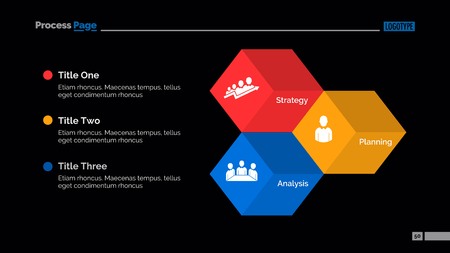1. Understanding Credit Scores
If you’ve ever thought about buying a car, renting an apartment, or even signing up for a new cell phone plan in the United States, you’ve probably heard about your credit score. But what exactly is a credit score, how is it calculated, and why should you care?
What Is a Credit Score?
A credit score is a three-digit number that shows lenders how likely you are to repay borrowed money. In the U.S., most people use the FICO® Score or VantageScore®. These scores range from 300 to 850—the higher your score, the better your credit looks to banks and other lenders.
How Is Your Credit Score Calculated?
Credit scores are calculated using information from your credit report. The main factors that impact your score include:
| Factor | Percentage of Score | What It Means |
|---|---|---|
| Payment History | 35% | Whether you pay your bills on time |
| Amounts Owed (Credit Utilization) | 30% | How much debt you have compared to your available credit |
| Length of Credit History | 15% | How long you’ve had credit accounts open |
| New Credit | 10% | The number of recent credit inquiries or new accounts opened |
| Credit Mix | 10% | The variety of credit types you have (like student loans, credit cards, auto loans) |
Why Does Your Credit Score Matter?
Your credit score affects many parts of your financial life. A higher score makes it easier to get approved for loans and credit cards—and can help you qualify for lower interest rates, which means less money paid over time. Landlords might check your score before renting to you, and some employers may look at it as part of a background check. In short, building and maintaining good credit can save you money and open doors to more financial opportunities.
2. Student Loans and Their Effect on Credit
How Student Loans Are Reported to Credit Bureaus
Student loans, whether federal or private, play a significant role in shaping your credit history. Both types of loans are reported to major credit bureaus—Experian, Equifax, and TransUnion. When you take out a student loan, it is added as a tradeline to your credit report. This means the loan amount, payment history, and current balance all become part of your credit profile.
Federal vs. Private Student Loans: What’s the Difference?
| Feature | Federal Student Loans | Private Student Loans |
|---|---|---|
| Who Offers Them? | U.S. Department of Education | Banks, credit unions, online lenders |
| Interest Rates | Fixed and usually lower | Fixed or variable; often higher |
| Repayment Flexibility | Flexible plans, deferment options | Less flexible repayment terms |
| Credit Reporting Impact | Reported monthly to bureaus | Reported monthly to bureaus |
How Student Loans Affect Your Credit Score Over Time
Your student loans can help or hurt your credit score depending on how you manage them. Here’s how:
- On-time Payments: Making payments on time each month helps build a positive payment history, which is the biggest factor in your credit score.
- Missed or Late Payments: Missing payments or paying late can seriously damage your credit score. Delinquent accounts may even be sent to collections if ignored for too long.
- Total Debt Amount: The total amount you owe is considered when calculating your credit utilization ratio. While installment loans like student loans don’t impact this ratio as much as credit cards do, having high balances can still affect your overall financial picture.
- Length of Credit History: Because student loans are often paid over many years, they can help lengthen your credit history—which can benefit your score in the long run.
- Diverse Credit Mix: Having both installment loans (like student loans) and revolving accounts (like credit cards) can improve your credit mix, which is a smaller but still important part of your score.
Quick Tip:
If you’re struggling to make payments on federal student loans, look into income-driven repayment plans or deferment options before missing a payment. These programs can help protect your credit while you get back on track.

3. Other Common Debts That Affect Your Credit
When it comes to your credit score in the U.S., student loans aren’t the only debts you need to pay attention to. There are several other types of debt that play a big role in shaping your overall credit health. Understanding how each one impacts your score can help you make smarter financial decisions.
Credit Cards
Credit cards are one of the most common types of revolving debt for Americans. The way you manage your credit cards—like how much you owe and whether you pay on time—directly affects your credit score. High balances or missed payments can quickly lower your score, while keeping your balances low and making payments on time will help boost it.
Key Points About Credit Cards
| Factor | Impact on Credit Score |
|---|---|
| On-Time Payments | Very Positive |
| High Balances (High Utilization) | Negative |
| Long Credit History | Positive |
| Frequent Applications | Negative (can lower score) |
Auto Loans
Auto loans are installment loans, which means you borrow a set amount and pay it back over time with regular payments. Consistently making your car payment on time helps build a positive payment history, which is a major factor in your credit score. However, missing payments or defaulting on an auto loan can seriously hurt your credit.
How Auto Loans Affect Credit Health:
- Diversifies your credit mix: Having different kinds of debt (like both credit cards and an auto loan) can be beneficial.
- Shows ability to manage large purchases: Successfully paying off an auto loan demonstrates financial responsibility.
- Missed payments: Late or missed payments are reported to credit bureaus and can stay on your report for years.
Mortgages
A mortgage is typically the largest debt most Americans take on. Like auto loans, mortgages are installment loans and have a big impact on your credit profile. Getting approved for a mortgage usually requires a good credit score to begin with, but once you have one, making regular payments strengthens your credit over time.
Main Ways Mortgages Influence Your Credit Score:
- Adds to your credit mix: Lenders like to see you can handle different types of credit responsibly.
- Builds long-term payment history: Because mortgage terms are often 15-30 years, they help establish a lengthy and positive track record if paid on time.
- Large missed payments: Failing to pay your mortgage is very damaging and could lead to foreclosure, severely hurting your credit score for years.
A Quick Comparison of How Different Debts Affect Your Credit Score
| Type of Debt | Main Impact Areas |
|---|---|
| Credit Cards | Payment history, amounts owed (utilization), length of history |
| Auto Loans | Diversifies account types, payment history, total debt amount |
| Mortgages | Diversifies account types, builds long-term history, large missed payments hurt more |
| Student Loans | Diversifies account types, payment history, long repayment period helps build history if managed well |
The key takeaway is that all these debts contribute in their own ways to shaping your credit profile. Being aware of how each works lets you build and maintain strong credit over time.
4. Positive and Negative Impacts of Debt on Your Score
Managing student loans and other types of debt can have both positive and negative effects on your credit score. It all depends on how you handle your payments, balances, and overall debt management.
How Responsible Debt Management Can Boost Your Credit Score
When you make your student loan or credit card payments on time every month, it shows lenders that you’re reliable. This is one of the most important factors in your credit score calculation. Keeping your balances low compared to your available credit (known as your credit utilization rate) can also help improve your score. Having a mix of different types of credit, such as student loans, auto loans, and credit cards, can work in your favor too—if managed well.
Positive Actions for Your Credit Score
| Action | Impact on Credit Score |
|---|---|
| On-time payments | Major positive impact |
| Keeping balances low | Helps boost your score |
| Diversifying types of debt | Can strengthen credit history |
| Paying more than the minimum due | Reduces interest and total debt faster |
Negative Impacts: Missed Payments, Defaults, and High Balances
If you miss a payment—even by just a few days—it can lower your score. Defaulting on a loan or letting accounts go into collections has an even bigger negative effect. Carrying high balances on your credit cards compared to your limit can also drag your score down. These issues stay on your credit report for years and make it harder to qualify for good rates on future loans or even get approved for a rental apartment.
Negative Actions for Your Credit Score
| Action | Impact on Credit Score |
|---|---|
| Missed or late payments | Significant negative impact |
| Defaulting on loans | Long-term damage to score |
| High credit card balances | Lowers available credit ratio; hurts score |
| Too many new loan applications at once | Can temporarily decrease score |
Key Takeaway: Consistency Matters Most!
The best way to keep your credit score healthy is by paying all bills on time, keeping debts manageable, and only borrowing what you can afford to repay. Responsible habits today can open doors for major life goals like buying a home or car in the future.
5. Tips to Manage Debt and Build Better Credit
Taking control of your student loans and other debts is key to improving your credit score and preparing for big financial milestones like buying a home or a car. Here are some practical strategies you can use right now:
Stay on Top of Your Payments
Making payments on time is one of the biggest factors in your credit score. Set up automatic payments or calendar reminders so you never miss a due date. Even paying the minimum amount helps you avoid late fees and negative marks on your credit report.
Create a Realistic Budget
Knowing where your money goes each month helps you manage debt more effectively. List all your income sources and expenses, then look for areas where you can cut back. Use those savings to pay down debt faster.
Sample Monthly Budget Table
| Category | Estimated Amount ($) |
|---|---|
| Rent/Mortgage | 1,200 |
| Utilities & Internet | 200 |
| Groceries | 350 |
| Student Loan Payment | 250 |
| Credit Card Payment | 100 |
| Savings/Investments | 150 |
| Other Expenses (transportation, phone, etc.) | 300 |
| Total Expenses | 2,550 |
Avoid Taking On New Debt When Possible
If you’re already managing student loans or credit card balances, try not to add new debt unless it’s absolutely necessary. This helps keep your debt-to-income ratio low, which lenders look at when you apply for new credit.
Pay More Than the Minimum When You Can
If you have extra cash, put it toward your highest-interest debt first. This strategy—often called the “avalanche method”—saves you money on interest and helps you pay off debt faster.
Debt Repayment Strategies Table
| Strategy Name | Description | Best For… |
|---|---|---|
| Avalanche Method | Pay off debts with highest interest rates first while making minimum payments on others. | Savers who want to minimize total interest paid. |
| Snowball Method | Pay off smallest debts first to build momentum, then move to larger ones. | People motivated by quick wins. |
| Consolidation Loan | Combine multiple debts into one loan with a lower rate or single payment. | Those with several high-interest debts. |
| Income-Driven Repayment (for federal student loans) | Your monthly payment is set based on your income and family size. | Borrows with limited income or large federal loan balances. |
Monitor Your Credit Regularly
You’re entitled to a free annual credit report from each of the three major credit bureaus—Experian, Equifax, and TransUnion—at AnnualCreditReport.com. Checking your credit lets you spot errors early and track your progress over time.
If You’re Planning for Major Life Purchases…
Lenders will look closely at your credit score and debt levels when considering you for a mortgage, car loan, or even some rental applications. Managing your student loans and other debts wisely can make it much easier (and cheaper) to get approved for these big purchases in the future.


